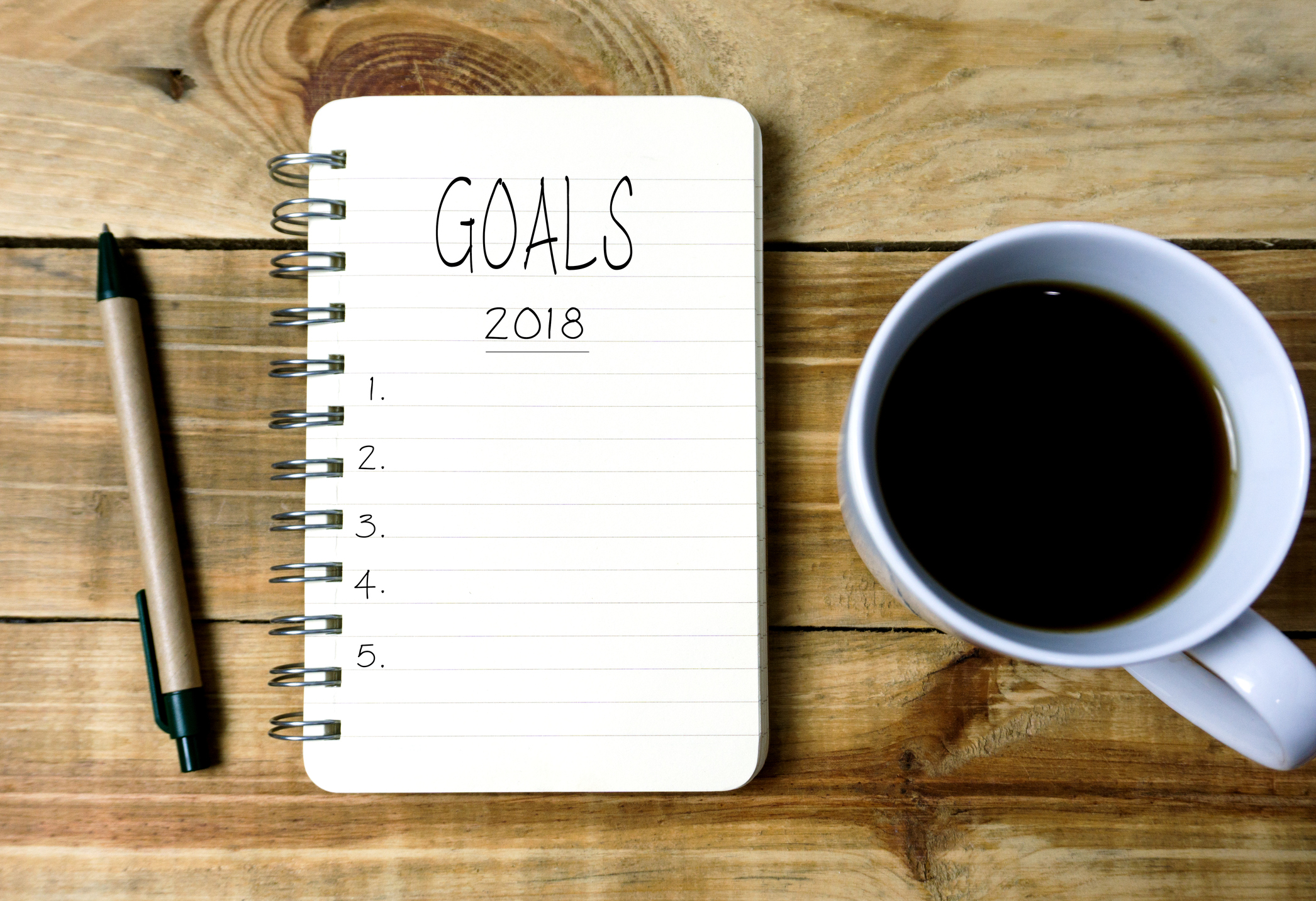One of the most challenging parts of selecting a dietary strategy is developing a clear outcome goal.
Have you ever thought about your own personal nutrition goals and why they matter to you?
If you don’t know exactly what you’re trying to accomplish, or haven’t fully committed to this outcome, you’re setting yourself up to fail. You’ll get lost in a sea of confusion about how much, how often, and what exact foods to eat.
These days you can Google just about any nutrition question and find dozens of polar opposite guidelines. So it’s no wonder so many women struggle with figuring out how to eat in a way that supports their goals.
You absolutely must have clear, meaningful goals established before embarking on any diet or lifestyle change.
In this article, I’ll take you through the process of setting nutrition goals that matter to you (and you only), which is crucial for the success of any dietary change.
What Goal Matters To You?
I always start with goal setting when I start working with new clients. If we don’t know what we’re trying to accomplish during our time together, we can’t come up with a solid plan of action for getting these results.
Imagine trying to get a roadmap or directions from your phone without knowing exactly where you’re going. You can see how this would be an impossible task.
It’s the same way with your nutrition. If you don’t have clarity on your specific health and fitness goals, you’ll have no idea what type of dietary plan to follow.
And when I say “clarity”, I mean you really need to pick ONE thing to focus on.
So many women I work with tell me that they want to lose fat, gain muscle, and boost their performance in the gym. Or they want to heal their “adrenal fatigue” and lose weight at the same time.
These are lovely intentions. But when it comes to your diet, you typically can’t focus on two or three conflicting goals at the same time.
If you try to set these conflicting goals, you’ll have no clue what to eat, how much to eat, what time to eat, and what specific types of foods to eat.
You’ll float around from plan to plan without really sticking to any of them. And you’ll feel lost and frustrated when things aren’t working the way you hoped they would.
That’s why it’s so important to pick ONE primary goal to focus on.
You Need One Primary Goal
By picking one goal, you’ll have the clarity and vision you need to stick to a plan that’s appropriately designed to meet the goal you’re aiming for.
And the nice thing about some goals is you can still accomplish other physical changes. Even if they’re not your primary focus.
For example, eating to perform well in the gym is one of the best goals you can set for yourself. That’s because when you focus on performance, you make choices that often times support other outcomes. These outcomes include fat loss, muscle gain, and even better health.
And recovering from “adrenal fatigue” can allow you to lose weight in a healthy way in the future.
Despite this, you should still focus on one outcome to work towards. This allows you to construct a more effective and focused plan.

How To Pick The Right Goal
To help you select the goal you want to focus on, here are some questions you should ask yourself:
- What is the most important change I’d like to see in my body in the next 6-12 months?
- Why is it important to me that I see this change?
- How will my life be different if I accomplish this goal?
- What will happen in the next year if I don’t accomplish this goal?
- What types of behavior change will be necessary to accomplish this goal?
- How will my day-to-day life be impacted by making these behavioral changes?
- What will I do if I’m not making progress towards my goal after a few weeks?
- How will I feel if I am able to accomplish this goal?
These are higher level questions that will tap into your motivation for working towards this goal, and why this goal matters to you.
Starting with a big picture vision like this will ensure you’re working towards a goal that you’re committed to.
If you’re not totally sure you care about accomplishing this goal, or you don’t know why you’re working towards it, you’re starting off on the wrong foot.
I can guarantee the minute things get challenging you will want to give up. You won’t have the intrinsic motivation to continue working towards this goal in the long run.
Would you like to save this post?
Your email address is 100% safe and will never be sent spam.
Get super clear about your “what” and “why”, and the “how” won’t be difficult to nail down.

What If Your Goals Make You Feel Guilty?
Many women struggle with setting health or fitness goals from a place of self-love, and doing so confidently. Sometimes setting personal goals can make us feel a sense of shame, or like we’re doing something wrong.
Shame is a big driving force for inappropriate goal setting. It’s also a barrier that prevents us from committing to our goals in an effective way.
As an example, fat loss is an especially controversial goal for a woman to set for herself.
On one hand, some women believe they can only be considered healthy and fit if they’re as lean as possible.
This isn’t true. And too many women work towards a weight loss goal from a place of shame about their bodies.
On the other hand, many women feel ashamed of their desire to lose weight or lean out. They believe this desire means they don’t love and accept themselves for who they are.
This isn’t true either. Losing body fat is a perfectly acceptable goal to work towards, provided you’re doing it for the right reasons.
You can love your body as it is in this moment, and still work to see changes in how it looks.
Give yourself permission to work towards a fat loss goal if that’s what you really want.
But also be sure to consider why you want to accomplish this goal, and if it’s actually coming from a place of low self-esteem.

Some women also feel guilty if they’re focused on a goal that benefits them exclusively.
Many women – especially those who are mothers – really struggle with prioritizing self-care. They feel that their kids’ or their husband’s needs come first. They don’t leave any time or energy to take care of themselves.
These women have an idea in their head that they want to accomplish a health goal. But as soon as they start taking action steps towards reaching that goal, they feel guilty for any time it takes away from taking care of their families.
Ladies, you need to remember that you’re only able to care for others as well as you care for yourself. As the saying goes, “You can’t pour from an empty cup.”
If you have a health or fitness goal you want to accomplish, take it seriously and prioritize it. Even if it feels scary to put your needs first.
Give yourself permission to take care of your body. Even if you have to say “no” to your family or friends in order to do so.
What’s Your Primary Nutrition Goal?
Now I want to hear from you!
What is the number one nutrition or health-related goal that you’re going to be focusing on above all others right now?
Share your goals in the comments below!
Need help figuring out what you should be prioritizing in your health right now?
Sign up for your Functional Nutrition Strategy Session today and let me help you figure out what to focus on first!
This post may contain affiliate links. If you click on a link and make a purchase, I may receive a small commission.

+ show Comments
- Hide Comments
add a comment